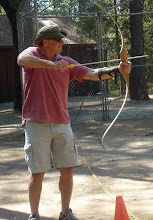
Fate aside, in the noisy confusion of our lives we all are sensitive to "initial conditions". Small things can radically alter the course of events. We meet people by chance, we get in or out of danger through minor delays in our routine. In the most comedic examples agents like Inspector Clouseau or Maxwell Smart rely on exquisite "accidental good luck" to survive and thrive.
From Kaos agents to the broad Chaos Theory: the study of systems that can be unpredictable as small differences yield diverging outcomes, even for deterministic systems. The most popular visualization of the sensitivity of an outcome to initial conditions is The Butterfly Effect, by Edward Lorenz from his 1972 paper Does the Flap of a Butterfly's Wings in Brazil set off a tornado in Texas?
Kaos East European lineage invites a neat case of Chaos in world affairs:
From Kaos agents to the broad Chaos Theory: the study of systems that can be unpredictable as small differences yield diverging outcomes, even for deterministic systems. The most popular visualization of the sensitivity of an outcome to initial conditions is The Butterfly Effect, by Edward Lorenz from his 1972 paper Does the Flap of a Butterfly's Wings in Brazil set off a tornado in Texas?
Kaos East European lineage invites a neat case of Chaos in world affairs:
The Soviet Coup d'Etat attempt in 1991, whose failure arguably led to the dissolution of the Soviet Union. We remember how the conspirators confined Gorbachev to his dacha in the Crimea while the KGB cut his communications lines, and the images of Yeltsin climbing on one of the tanks guarding Moscow's White House to address the crowd. Yeltsin's role against the coup, and in particular the failure to arrest him proved decisive to the outcome.
The conspirators allegedly awaited for Yeltsin's return from Kazakhstan to demand he join the coup against Gorbachev. Yeltsin would be arrested if he declined, and the coup would just proceed without him.
Yet a chronicle just aired on NPR says that Yeltsin neither accepted nor declined. The conspirators didn't plan for an excluded middle. Yeltsin landed so drunk that the conspirators were not able to wake him up. He sobered up the following day, but by then Yeltsin was surrounded by his advisors and had caught up with their intentions.
The conspirators allegedly awaited for Yeltsin's return from Kazakhstan to demand he join the coup against Gorbachev. Yeltsin would be arrested if he declined, and the coup would just proceed without him.
Yet a chronicle just aired on NPR says that Yeltsin neither accepted nor declined. The conspirators didn't plan for an excluded middle. Yeltsin landed so drunk that the conspirators were not able to wake him up. He sobered up the following day, but by then Yeltsin was surrounded by his advisors and had caught up with their intentions.
Little does it matter if our lives or tomorrow's weather are ruled by chaos. But when a glass of Vodka in Kazakhstan affects the fate of the Soviet empire, that is Kaos.
